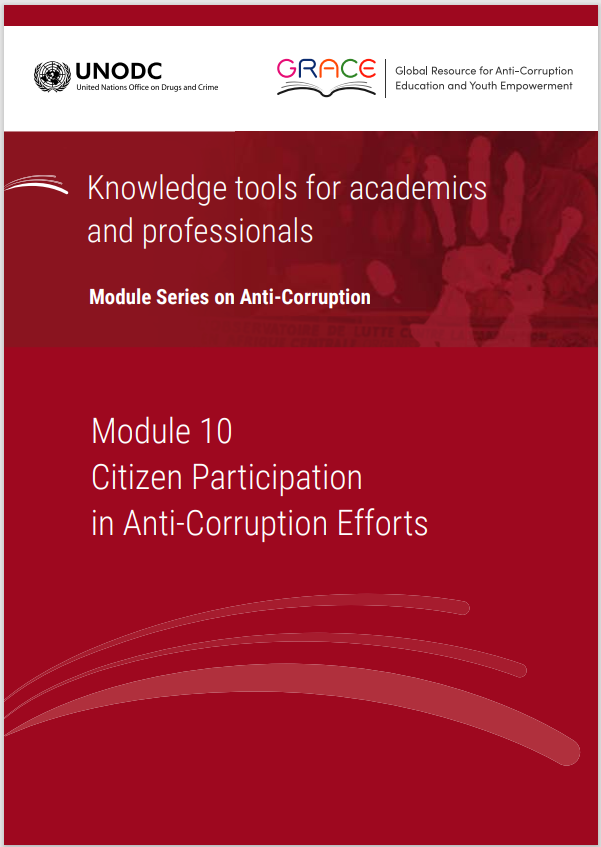This module is a resource for lecturers
Additional teaching tools
This section includes links to relevant teaching aides such as PowerPoint slides, video material and case studies, that could help the lecturer teach the issues covered by the Module. Lecturers can adapt the slides and other resources to their needs.
PowerPoint presentations
- Presentation on Module 10 [to be added]
Video material
- Citizen journalism (2011). Paul Lewis, TEDxThessaloniki (17 min). In this video, journalist Paul Lewis talks about new media, citizen journalism and how he has used social media to investigate two murders. He also talks about the new level of transparency and accountability social media offers in public life.
- Citizen journalism is reshaping the world (2012). Brian Conley, TEDxMidAtlantic (10 min). In this video, Brian Conley, Director of the Small World News imitative, explains how important citizen journalism in the modern world is by telling the stories of numerous journalists who have been jailed because of their actions.
- Fighting Corruption in the Developing World (2016). James D Long, TEDxUofW (30 min). In this video, James D Long presents a broad overview of what individuals and civil society can do to fight corruption and the role that technology can play in fighting corruption. The talk illustrates that "ordinary" people with limited resources can have an impact on anti-corruption by being innovative, committed, willing and brave.
- How I named, shamed and jailed (2013). Anas Aremeyaw Anas, TED2013 (12 min). Journalist Anas Aremeyaw Anas has broken dozens of stories of corruption and organized crime all over Ghana - without ever revealing his identity. In this talk (in which his face remains hidden), Anas shows footage from some of his investigations and demonstrates the importance of facing injustice.
- How the Panama Papers journalists broke the biggest leak in history (2016). Gerard Ryle, TED Summit (13 min). In this TED Talk, Gerard Ryle gives an insight into how the Panama Papers investigation was conducted.
- How to Expose the Corrupt (2009). Peter Eigen, TEDxBerlin (16 min). In his talk, Peter Eigen describes the counter-attack on corruption led by his organization, Transparency International.
- My battle to expose government corruption (2012). Heather Brooke, TEDGlobal 2012 (19 min). Journalist Heather Brooke uncovered the British Parliamentary financial expenses that led to a major political scandal in 2009. She urges us to ask our leaders questions through platforms like Freedom of Information requests -- and to finally get some answers.
- Why young people should care about corruption (2019). Transparency International (4 minutes). Can young people end corruption? Why should they even care? Why is it important to participate in elections? These are some of the questions Transparency International asked four young Panamanians on the occasion of International Youth Day.
Websites
- Curbing corruption - a knowledge hub offering various tools and materials on anti-corruption reforms.
- Involve - provides a vast collection of tools, case studies and publications on citizen participation in decision-making and building democracy.
- International Association for Public Participation - IAP2offers a wealth of resources available to assist organizations, decision makers, policymakers and practitioners to improve the quality of public participation, which could be used for case studies or class discussions.
Case studies, news reports and blogs
- Fitzgibbon, Will (2018). 'We are the enemies of our leaders': Meet the journalists behind West Africa Leaks. International Consortium of Investigative Journalists, 22 May.
- Harber, Anton (2018). How investigative journalists helped turn the tide against corruption. News24, 19 March.
- Hlebo, Jesse (2015). Is anything authentic in the age of social media? The Conversation, 23 January.
- Olarewaju, Tolu (2019). Can social media help anti-corruption drives? A Nigerian case study. The Conversation, 4 June.
 Next:
Guidelines to develop a stand-alone course
Next:
Guidelines to develop a stand-alone course
 Back to top
Back to top
